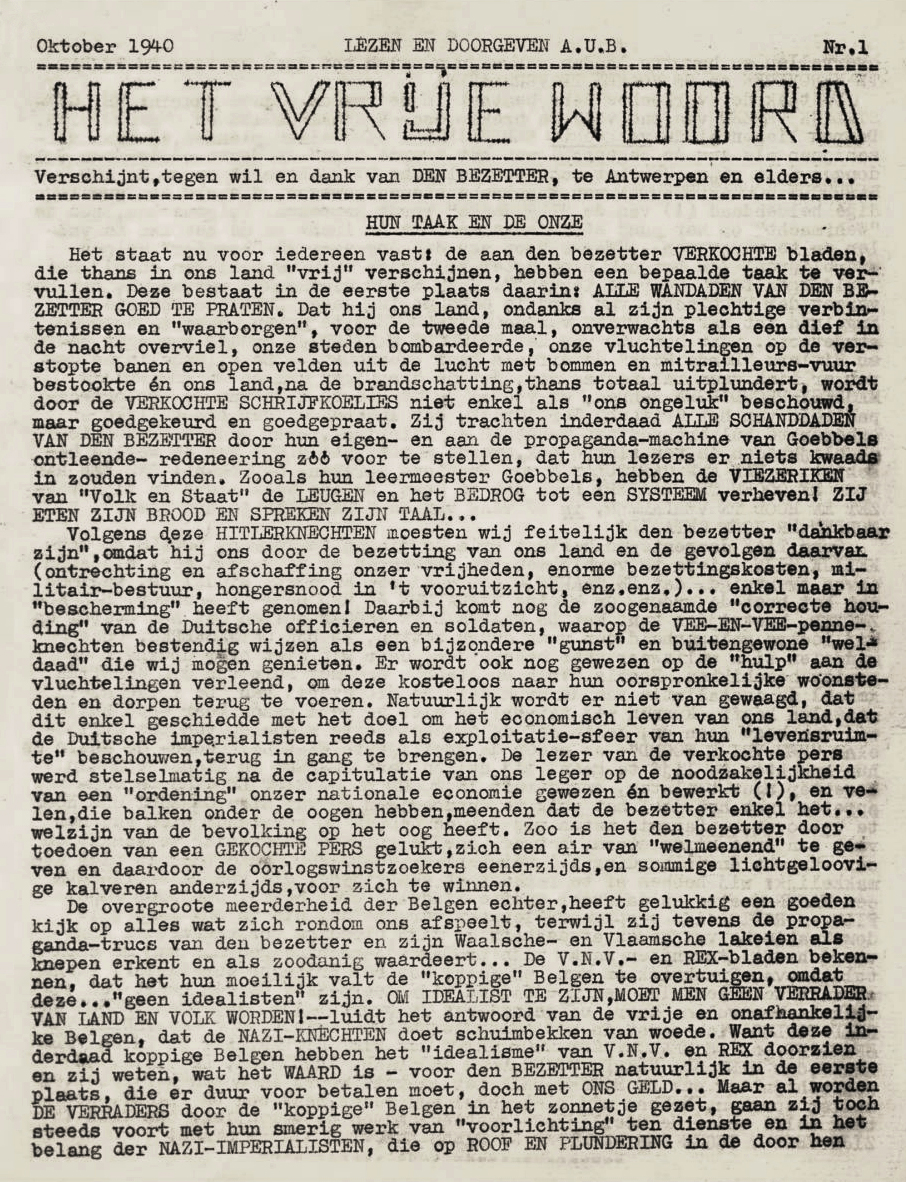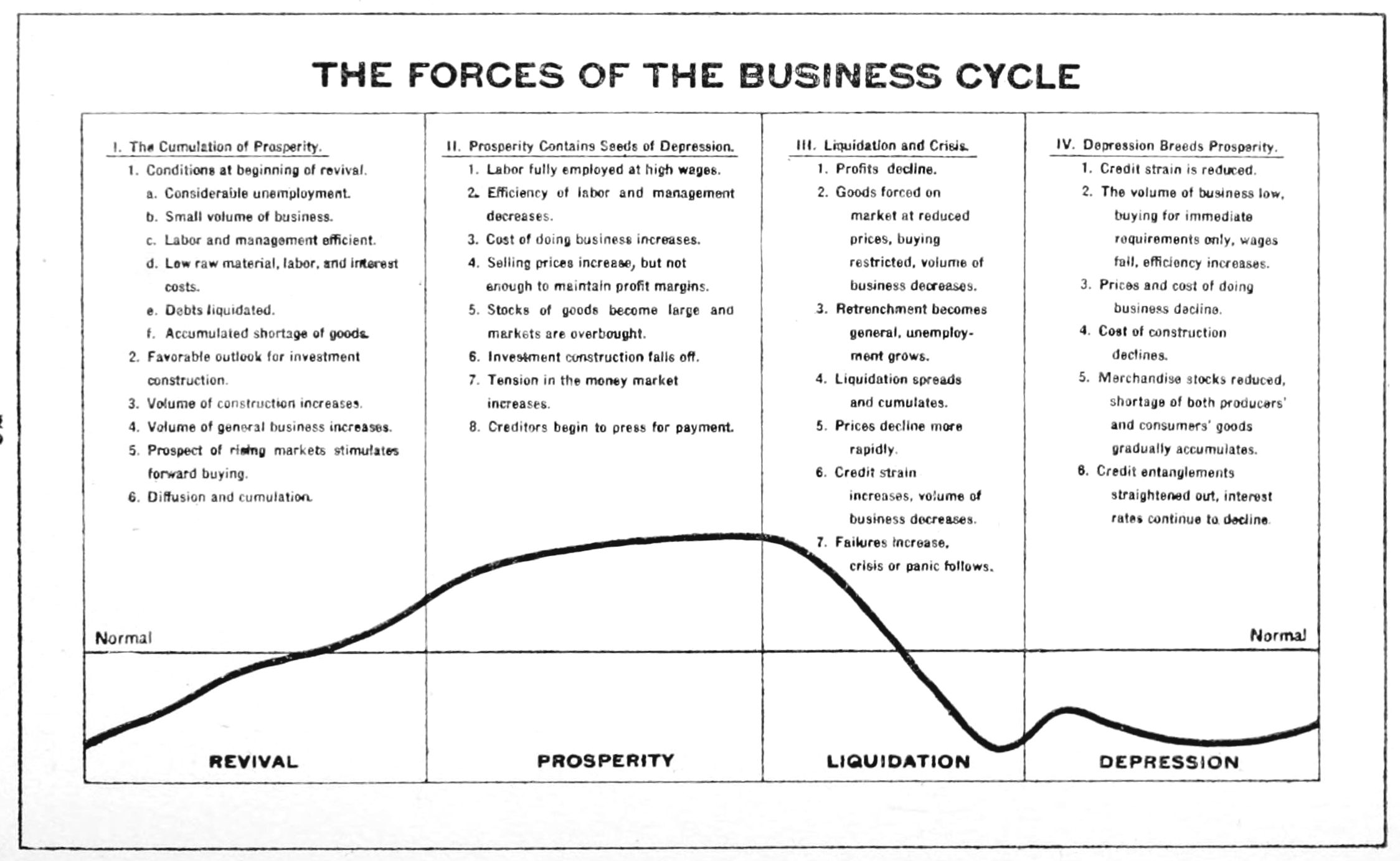|
Crisis Theory
Crisis theory, concerning the causes and consequences of the tendency for the rate of profit to fall in a capitalist system, is associated with Marxian critique of political economy, and was further popularised through Marxist economics. History Earlier analysis by Jean Charles Léonard de Sismondi provided the first suggestions of the systemic roots of Crisis. "The distinctive feature of Sismondi's analysis is that it is geared to an explicit dynamic model in the modern sense of this phrase ... Sismondi's great merit is that he used, systematically and explicitly, a schema of periods, that is, that he was the first to practice the particular method of dynamics that is called period analysis". Marx praised and built on Sismondi's theoretical insights. Rosa Luxemburg and Henryk Grossman both subsequently drew attention to both Sismondi's work on the nature of capitalism, and as a reference point for Karl Marx. Grossman in particular pointed out how Sismondi had contributed ... [...More Info...] [...Related Items...] OR: [Wikipedia] [Google] [Baidu] |
Rudolf Hilferding
Rudolf Hilferding (10 August 1877 – 11 February 1941) was an Austrian-born Marxist economist, socialist theorist,International Institute of Social History, ''Rodolf Hilferding Papers''. http://www.iisg.nl/archives/en/files/h/10751012.php politician and the chief theoretician for the Social Democratic Party of Germany (SPD) during the Weimar Republic, Smaldone, William, ''Rudolf Hilferding and the total state.'', 1994. http://www.encyclopedia.com/doc/1G1-15867926.html being almost universally recognized as the SPD's foremost theoretician of this century. David E. Barclay, Eric D. Weitz, Michael Kreile. ''Between Reform and Revolution: German Socialism and Communism from 1840 to 1990'' https://books.google.com/books?id=hpzno0qNY34C&pg=PA373 He was also a physician. He was born in Vienna, where he received a doctorate having studied medicine. After becoming a leading journalist for the SPD, he participated in the November Revolution in Germany and was Finance Minister of Germa ... [...More Info...] [...Related Items...] OR: [Wikipedia] [Google] [Baidu] |
Eduard Bernstein
Eduard Bernstein (; 6 January 1850 – 18 December 1932) was a German social democratic Marxist theorist and politician. A member of the Social Democratic Party of Germany (SPD), Bernstein had held close association to Karl Marx and Friedrich Engels, but he began to identify what he believed to be errors in Marxist thinking and began to criticize views held by Marxism when he investigated and challenged the Marxist materialist theory of history. He rejected significant parts of Marxist theory that were based upon Hegelian metaphysics and rejected the Hegelian perspective of an immanent economic necessity to socialism. Early life Bernstein was born in Schöneberg (now part of Berlin) to Jewish parents who were active in the Reform Temple on the Johannistrasse whose services were performed on Sunday. His father was a locomotive driver. From 1866 to 1878, he was employed in banks as a banker's clerk after leaving school. Bernstein's political career began in 1872, when h ... [...More Info...] [...Related Items...] OR: [Wikipedia] [Google] [Baidu] |
Post–World War II Economic Expansion
The post–World War II economic expansion, also known as the postwar economic boom or the Golden Age of Capitalism, was a broad period of worldwide economic expansion beginning after World War II and ending with the 1973–1975 recession. The United States, the Soviet Union and Western European and East Asian countries in particular experienced unusually high and sustained growth, together with full employment. Contrary to early predictions, this high growth also included many countries that had been devastated by the war, such as Japan ( Japanese economic miracle), West Germany and Austria ( Wirtschaftswunder), South Korea ( Miracle on the Han River), Belgium (Belgian economic miracle), France ( Trente Glorieuses), Italy ( Italian economic miracle) and Greece (Greek economic miracle). Even countries that were relatively unaffected by the war such as Sweden ( Record years) experienced considerable economic growth. The boom established the conditions for a larger series of gl ... [...More Info...] [...Related Items...] OR: [Wikipedia] [Google] [Baidu] |
Marx, Karl
Karl Heinrich Marx (; 5 May 1818 – 14 March 1883) was a German philosopher, economist, historian, sociologist, political theorist, journalist, critic of political economy, and socialist revolutionary. His best-known titles are the 1848 pamphlet ''The Communist Manifesto'' and the four-volume (1867–1883). Marx's political and philosophical thought had enormous influence on subsequent intellectual, economic, and political history. His name has been used as an adjective, a noun, and a school of social theory. Born in Trier, Germany, Marx studied law and philosophy at the universities of Bonn and Berlin. He married German theatre critic and political activist Jenny von Westphalen in 1843. Due to his political publications, Marx became stateless and lived in exile with his wife and children in London for decades, where he continued to develop his thought in collaboration with German philosopher Friedrich Engels and publish his writings, researching in the British Museum ... [...More Info...] [...Related Items...] OR: [Wikipedia] [Google] [Baidu] |
Ernest Mandel
Ernest Ezra Mandel (; also known by various pseudonyms such as Ernest Germain, Pierre Gousset, Henri Vallin, Walter (5 April 1923 – 20 July 1995), was a Belgian Marxian economist, Trotskyist activist and theorist, and Holocaust survivor. He fought in the underground resistance against the Nazis during the occupation of Belgium. Life Born in Frankfurt, Mandel was recruited to the Belgian section of the international Trotskyist movement, the Fourth International, in his youth in Antwerp. His parents, Henri and Rosa Mandel, were Jewish emigres from Poland, the former a member of Rosa Luxemburg's and Karl Liebknecht's Spartacist League. The beginning of Mandel's period at university was interrupted when the German occupying forces closed the university. During World War II, while still a teenager, he joined the Belgian Trotskyist organisation alongside Abraham Leon and Martin Monath. He twice escaped after being arrested in the course of resistance activities, and survived i ... [...More Info...] [...Related Items...] OR: [Wikipedia] [Google] [Baidu] |
Business Cycle
Business cycles are intervals of expansion followed by recession in economic activity. These changes have implications for the welfare of the broad population as well as for private institutions. Typically business cycles are measured by examining trends in a broad economic indicator such as Real Gross Domestic Production. Business cycle fluctuations are usually characterized by general upswings and downturns in a span of macroeconomic variables. The individual episodes of expansion/recession occur with changing duration and intensity over time. Typically their periodicity has a wide range from around 2 to 10 years (the technical phrase "stochastic cycle" is often used in statistics to describe this kind of process.) As in arvey, Trimbur, and van Dijk, 2007, ''Journal of Econometrics'' such flexible knowledge about the frequency of business cycles can actually be included in their mathematical study, using a Bayesian statistical paradigm. There are numerous sources of busines ... [...More Info...] [...Related Items...] OR: [Wikipedia] [Google] [Baidu] |
Creative Destruction
Creative destruction (German: ''schöpferische Zerstörung'') is a concept in economics which since the 1950s is the most readily identified with the Austrian-born economist Joseph Schumpeter who derived it from the work of Karl Marx and popularized it as a theory of economic innovation and the business cycle. It is also sometimes known as Schumpeter's gale. According to Schumpeter, the "gale of creative destruction" describes the "process of industrial mutation that continuously revolutionizes the economic structure from within, incessantly destroying the old one, incessantly creating a new one". In Marxian economic theory the concept refers more broadly to the linked processes of the accumulation and annihilation of wealth under capitalism. The German sociologist Werner Sombart has been credited with the first use of these terms in his work ''Krieg und Kapitalismus'' (''War and Capitalism'', 1913).Describing the way in which the destruction of forests in Europe laid ... [...More Info...] [...Related Items...] OR: [Wikipedia] [Google] [Baidu] |
Joseph Schumpeter
Joseph Alois Schumpeter (; February 8, 1883 – January 8, 1950) was an Austrian-born political economist. He served briefly as Finance Minister of German-Austria in 1919. In 1932, he emigrated to the United States to become a professor at Harvard University, where he remained until the end of his career, and in 1939 obtained American citizenship. Schumpeter was one of the most influential economists of the early 20th century, and popularized the term "creative destruction", which was coined by Werner Sombart. Early life and education Schumpeter was born in Triesch, Habsburg Moravia (now Třešť in the Czech Republic, then part of Austria-Hungary) in 1883 to German-speaking Catholic parents. Both of his grandmothers were Czech. Schumpeter did not acknowledge his Czech ancestry; he considered himself an ethnic German. His father owned a factory, but he died when Joseph was only four years old. In 1893, Joseph and his mother moved to Vienna. Schumpeter was a loyal suppo ... [...More Info...] [...Related Items...] OR: [Wikipedia] [Google] [Baidu] |
Theory Of Imperialism
The theory of imperialism refers to a range of theoretical approaches to understanding the expansion of capitalism into new areas, the unequal development of different countries, and economic systems that may lead to the dominance of some countries over others. These theories are considered distinct from other uses of the word imperialism which refer to the general tendency for empires throughout history to seek power and territorial expansion. The theory of imperialism is often associated with Marxist economics, but many theories were developed by non-Marxists. Most theories of imperialism, with the notable exception of ultra-imperialism, hold that imperialist exploitation leads to warfare, colonization, and international inequality. Early theories Marx While most theories of imperialism are associated with Marxism, Karl Marx never used the term imperialism, nor wrote about any comparable theories. However many writers have suggested that ideas integral to later theori ... [...More Info...] [...Related Items...] OR: [Wikipedia] [Google] [Baidu] |
Kuruma Samezō
Kuruma Samezō (久留間鮫造), September 24, 1893 (Meiji 26)-October 20, 1982 (Showa 57) was a Japanese economist. He was professor emeritus at Hōsei University where he ran the Ōhara Institute for Social Research, and was best known as the compiler of a Lexicon of Marxist Political Economy. He is the father of Rikkyō University professor emeritus Kuruma Ken. Personal Summary Born to a paper-seller in Okayama-city, Okayama-prefecture, as the eldest son he was expected to take over the family business, and after reading Wealth of Nations he developed an early interest in economics. After attending Okayama Prefectural Middle School and High School number 6, he enrolled in the economics department of Tokyo Imperial University Law School, but after one month he transferred to political science. He graduated after a gap year due to illness, but attended no seminars. In 1918 he began working for Sumitomo Bank, believing he would be conducting research. The Rice riots of 1918, ... [...More Info...] [...Related Items...] OR: [Wikipedia] [Google] [Baidu] |
Max Beer
Moses "Max" Beer (10 August 1864 – 30 April 1943) was an Austrian-born Marxist journalist, economist, and historian. Beer is best remembered as an early writer on the topic of imperialism and for a series of books, published in translation in several countries, which examined the nature of class struggle throughout human history. Biography Early years Moses Beer, known to all by the nickname "Max," was born 10 August 1864 in the small town of Tarnobrzeg, Galicia, which was then part of the Austrian Empire. He was of ethnic Jewish heritage.Richard B. Day and Daniel Gaido, eds. and trans., ''Discovering Imperialism: Social Democracy to World War I.'' (2011) Chicago: Haymarket Books, 2012; pg. 95. Beer's father, Nathan Beer, worked as a kosher butcher.Donald MacRaild, "Max Beer," in Thomas A. Lane (ed.), ''Biographical Dictionary of European Labor Leaders: A-L.'' Westport, CT: Greenwood Press, 1995; pp. 68-69. As a young boy Beer was educated in a Jewish Cheder, but he was moved ... [...More Info...] [...Related Items...] OR: [Wikipedia] [Google] [Baidu] |







